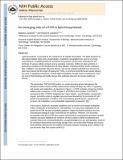An emerging role of mTOR in lipid biosynthesis
Author(s)
Laplante, Mathieu; Sabatini, David
DownloadSabatini_An emerging.pdf (1.871Mb)
OPEN_ACCESS_POLICY
Open Access Policy
Creative Commons Attribution-Noncommercial-Share Alike
Terms of use
Metadata
Show full item recordAbstract
Lipid biosynthesis is essential for the maintenance of cellular homeostasis. The lipids produced by cells (glycerolipids, fatty acids, phospholipids, cholesterol, and sphingolipids) are used as an energy source/reserve, as building blocks for membrane biosynthesis, as precursor molecules for the synthesis of various cellular products, and as signaling molecules. Defects in lipid synthesis or processing contribute to the development of many diseases, including obesity, insulin resistance, type 2 diabetes, non-alcoholic fatty liver disease, and cancer. Studies published over the last few years have shown that the target of rapamycin (TOR), a conserved serine/threonine kinase with an important role in regulating cell growth, controls lipid biosynthesis through various mechanisms. Here, we review these findings and briefly discuss their potential relevance for human health and disease.
Date issued
2009-12Department
Massachusetts Institute of Technology. Department of Biology; Whitehead Institute for Biomedical Research; Koch Institute for Integrative Cancer Research at MITJournal
Current Biology
Publisher
Elsevier Ltd.
Citation
Laplante, Mathieu, and David M. Sabatini. “An Emerging Role of mTOR in Lipid Biosynthesis.” Current Biology 19.22 (2009): R1046–R1052.
Version: Author's final manuscript
ISSN
0960-9822
1879-0445